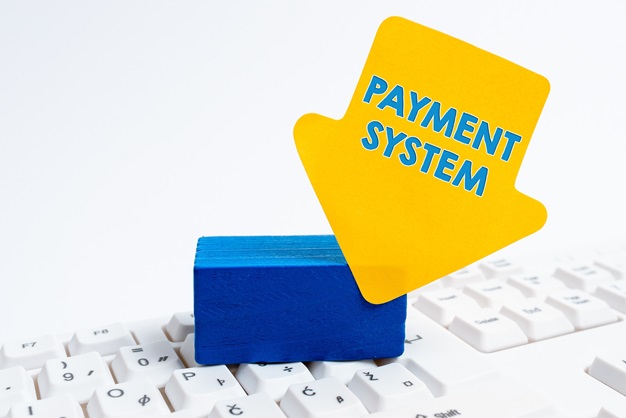Apostilles Demystified: a guide to Global Document Authentication

|
Getting your Trinity Audio player ready...
|
An apostille is a form of authentication issued to documents for use in countries that participate in the Hague Convention of 1961. The primary purpose of an apostille is to certify the authenticity of the signature on the document; the capacity in which the person signing the document acted; and, if applicable, the identity of the seal or stamp which the document bears. This process is essential for documents that need legal recognition in foreign jurisdictions, such as birth certificates, marriage licenses, and court orders.
Understanding the need for Apostilles
As globalization continues to grow, the need for an efficient and reliable method to authenticate documents internationally becomes increasingly important. Apostilles facilitate the legal recognition of documents among the member countries of the Hague Convention, thereby eliminating the need for additional certification by embassies or consulates.
The Apostille Process Explained
- Determine if Your Document Needs an Apostille: Not all documents require an apostille. Generally, public documents such as court orders, vital records, and government-issued documents are eligible.
- Obtain the Document from the Relevant Authority: The document must be issued by an official authority to ensure it is accepted for an apostille.
- Submit the Document for Apostille: This is typically done through a competent authority designated by the government of the country where the document was issued. In the United States, for example, the Secretary of State’s office in the state where the document originated is responsible for issuing apostilles.
- Receive the Apostille: The apostille itself is a stamp or printed form consisting of ten numbered standard fields. It will be attached to your original document, thus making it recognizable as authentic by the authorities in the destination country.
Examples of Documents That May Require an Apostille
Personal Documents:
- Birth Certificates – Essential for proving identity and nationality.
- Marriage Certificates – Required for legal matters involving marital status in another country.
- Divorce Decrees – Needed to prove marital status or for remarrying abroad.
- Death Certificates – Used for inheritance, property claims, or insurance abroad.
- Adoption Papers – Required for international adoptions or to verify family status.
- Passport Copies – Used for visa applications or residency permits.
- Driver’s Licenses – Useful for driving or vehicle-related formalities overseas.
- Medical Records – Needed for medical treatments or emergencies abroad.
- Background Checks (Police clearance certificate) – Required for employment or residency applications in another country.
Educational Documents:
- High School Diplomas – Often necessary for study programs or employment abroad.
- College Degrees – Required for advanced studies or professional opportunities overseas.
- Academic Transcripts – Used to transfer credits or prove educational qualifications.
- Professional Licenses – Necessary for practicing regulated professions in another country.
- Certificates of Non-Impediment to Marriage – Needed to marry abroad, proving there are no legal obstacles to the marriage in the home country.
Business and Legal Documents:
- Articles of Incorporation – Required for conducting business or opening bank accounts overseas.
- Corporate Bylaws – Used in legal transactions to prove business practices.
- Powers of Attorney – Needed to authorize individuals to act on one’s behalf in legal or business matters abroad.
- Contracts and Agreements – Must be authenticated for business transactions and enforcement in foreign jurisdictions.
- Court Documents – Necessary for legal proceedings involving foreign courts.
- Patents and Trademarks – Required for filing or enforcing intellectual property rights internationally.
- Tax Returns – Useful for financial transactions or proving income in foreign countries.
Government and Public Documents:
- Certificates of Naturalization – Required to prove citizenship for dual nationals engaging in civic activities abroad.
- Immigration Documents – Needed for residency, employment, or long-term stays in another country.
- Export Certificates – Essential for businesses involved in international trade.
- Certificates of Good Standing – Used to demonstrate that a business is compliant with local laws and operational.
These documents typically need an apostille to be recognized legally in any of the countries that are members of the Hague Convention. Always check with the relevant authorities in the destination country or consult legal expertise to confirm the specific requirements for apostilling documents in your case.
One Source Process: Legal Process Services & Authentication
One Source Process offers to manage the often intricate and time-consuming process of obtaining apostilles for documents that need legal recognition in countries that are members of the Hague Convention. For countries not part of the Hague Convention, they provide legalization services which may involve additional steps through various government agencies and embassies or consulates.
Process Serving
They provide nationwide process serving, which is the delivery of legal documents such as subpoenas, summons, complaints, and other court communications to individuals involved in legal proceedings. This service ensures that all legal parties are properly notified according to the law.
Visa and Passport Services
For travelers and expatriates, One Source Process can handle the bureaucratic aspects of visa applications and passport processing. This includes obtaining, renewing, and modifying visas and passports, which is crucial for smooth international travel and legal residency abroad.
Translation Services
Understanding the necessity of accurate document translation in legal and international contexts, One Source Process also offers translation services. This ensures that all documents are accurately translated and suitable for official use in another language, which is often a requirement before apostilling or legalization can occur.
Benefits of Using One Source Process
- Efficiency: They streamline complex processes, making it easier and faster for clients to get their documents in order.
- Expertise: Their knowledge of international legal document requirements can prevent common mistakes and delays.
- Convenience: Offering a full suite of services related to legal document handling under one roof saves time and simplifies logistics for clients.
By using a service like One Source Process, individuals and companies can reduce the administrative burden associated with international documentation, legal processes, and travel. This allows them to focus more on the substantive aspects of their international endeavors, whether personal or business-related.
The apostille system plays a crucial role in international legal transactions by providing a standardized method for document authentication. Understanding this process can save time and ensure that necessary legal documents are recognized in foreign countries. As more nations become interconnected through business, education, and immigration, the relevance of the apostille continues to grow.






